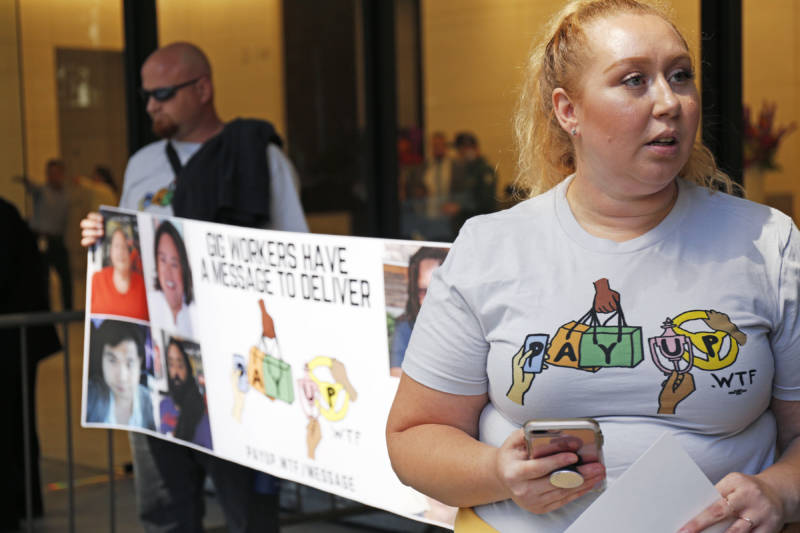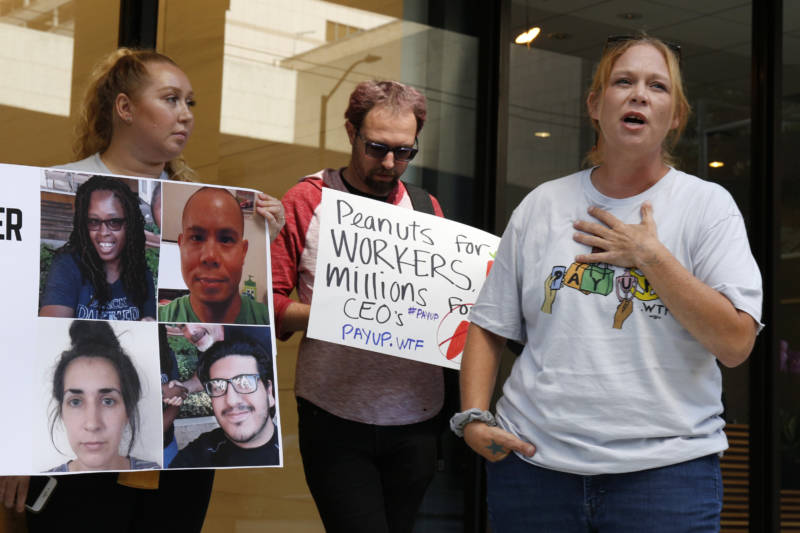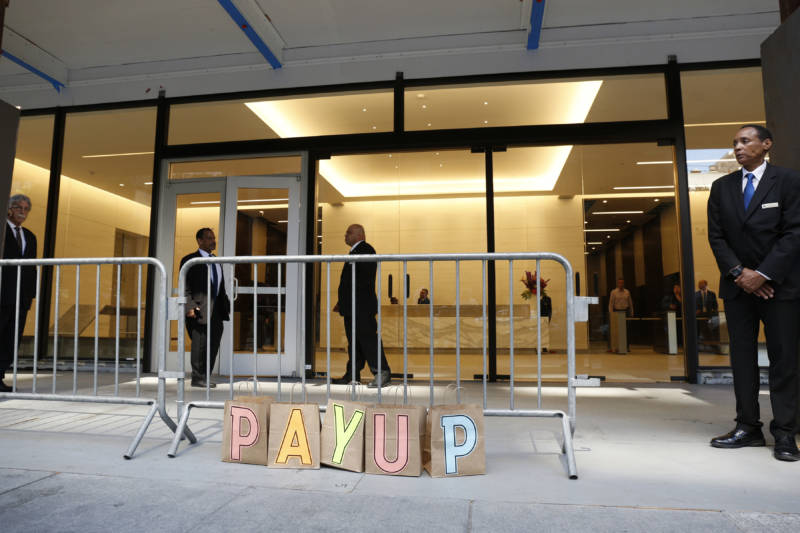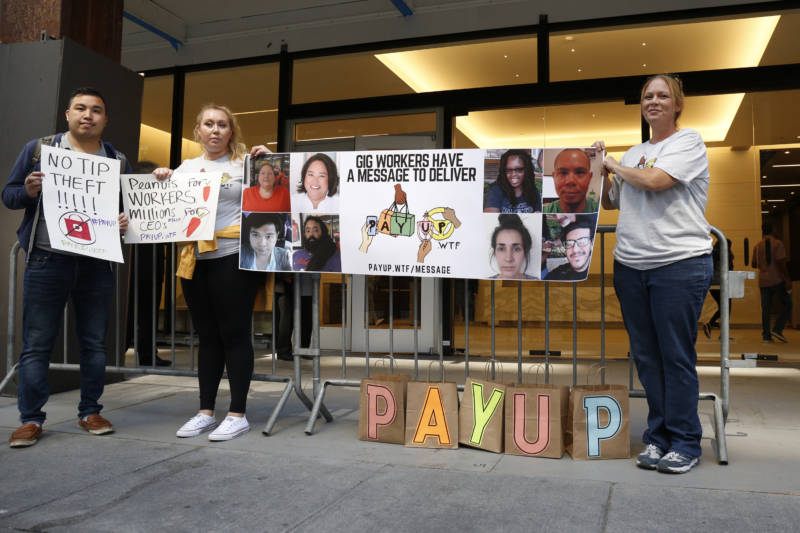Gig workers in San Francisco Thursday joined the ongoing protests against what they say are unfair labor practices at the app-based service providers who contract them.
The protesters who gathered were part of the #PayUp campaign, which advocates for: a $15 an hour minimum pay, plus reimbursements for expenses incurred on-the-job, “tips on top,” meaning tips aren’t just used to fill gaps in wages but truly supplement income, and for companies to provide transparent, line-item breakdown of earnings and expenses.
Protests began at the headquarters of the grocery delivery company, Instacart, at 50 Beale St., a high-rise on the border of the Financial District. The participants spoke about their experiences trying to make ends meet in the Bay Area working both full-time and part-time in the gig economy.

Vanessa Bain, one of the speakers, delivers for Instacart, DoorDash and Caviar. She says she slipped and split her head open out on a delivery and was back to work within an hour.
“I was bleeding, and I had to drive myself to the emergency room. I was in shock. I was in pain. And all I could think about [was] how I would ever be able to pay for the bill,” Bain said.

Schana Cummings said she used to be able to support herself working gig jobs for companies like Instacart, DoorDash and Amazon Flex, but can no longer meet her living expenses with what she earns. She says she can’t hold down a traditional job because she struggles with mental illness and the instability of gig work is adding to her anxiety.

The protesters came armed with bags of peanuts to deliver to the headquarters because, they say, that’s what these companies are paying us. They were unable to get through security to deliver the bags directly to Instacart’s office, so they left them outside and continued their march to Postmates and then DoorDash.
KQED reached out to Instacart, Postmates and DoorDash for comment. In a statement, Instacart said, “We respect the voices of all Instacart [workers], including those here today, and will continue to work closely with local legislators as we push to modernize laws in a way that allows [workers] to reach their personal and financial goals, while maintaining the flexibility they enjoy as part of the Instacart platform.”

